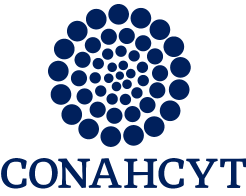Preserve and produce: Experience in implementing payments for environmental services in two indigenous communities in the northern and southern ranges
Payments for environmental services (PES) are conservation instruments in place in various Latin American countries. They are generally undergoing adjustment and implementation changes, and they are widely implemented in indigenous communities. This article aims to suggest a relevant group of context variables in PES implementation. Characterizing the local context of two indigenous communities located in Oaxaca, Mexico, and analyzing the relationship between the local context and PES implementation and outcomes
perceptions. The work is based on 75 surveys administered to beneficiary families of the instrument in the two localities. The results suggest three conclusions: The pertinence of the nine focal variables: “Forest cover, Opportunity costs, Livelihoods, Trust and cooperation, Motivations toward conservation, Management practices, Internal organization, Land tenure and Rules for the management and use” to the characterization of the local context. And the relevance of the new focal variable “Presence and experience with Civil Society Organizations”. The coincidence between the contextual variables and the determinants of the success of conservation instruments. Finally, the incidence of “Trust and cooperation” and “Internal organization” in the implementation of equitable PES schemes. And the importance of linking sustainable production to PES conservation schemes.
Documento disponible aquí
Más Vistos
- Who participates in conservation initiatives? Case studies in six rural...
- Regular Activity Patterns in Spatio-Temporal Events Databases: Multi-Scale...
- A case study of spanish text transformations for twitter sentiment analysis
- Dual-plane slightly off-axis digital holography based on a single cube beam...
- Evolutionary approach for detection of buried remains using hyperspectral images
Más Recientes
- Mayasoundex: A Phonetically Grounded Algorithm for Information Retrieval in the...
- Incorporating Natural Language Processing models in Mexico City's 311 Locatel
- The Geopolitical Repercussions of US Anti-immigrant Rhetoric on Mexican Online...
- Automation of Topic Generation in Government Information Requests in Mexico
- La incidencia de las voces misóginas sobre el espacio digital en México



